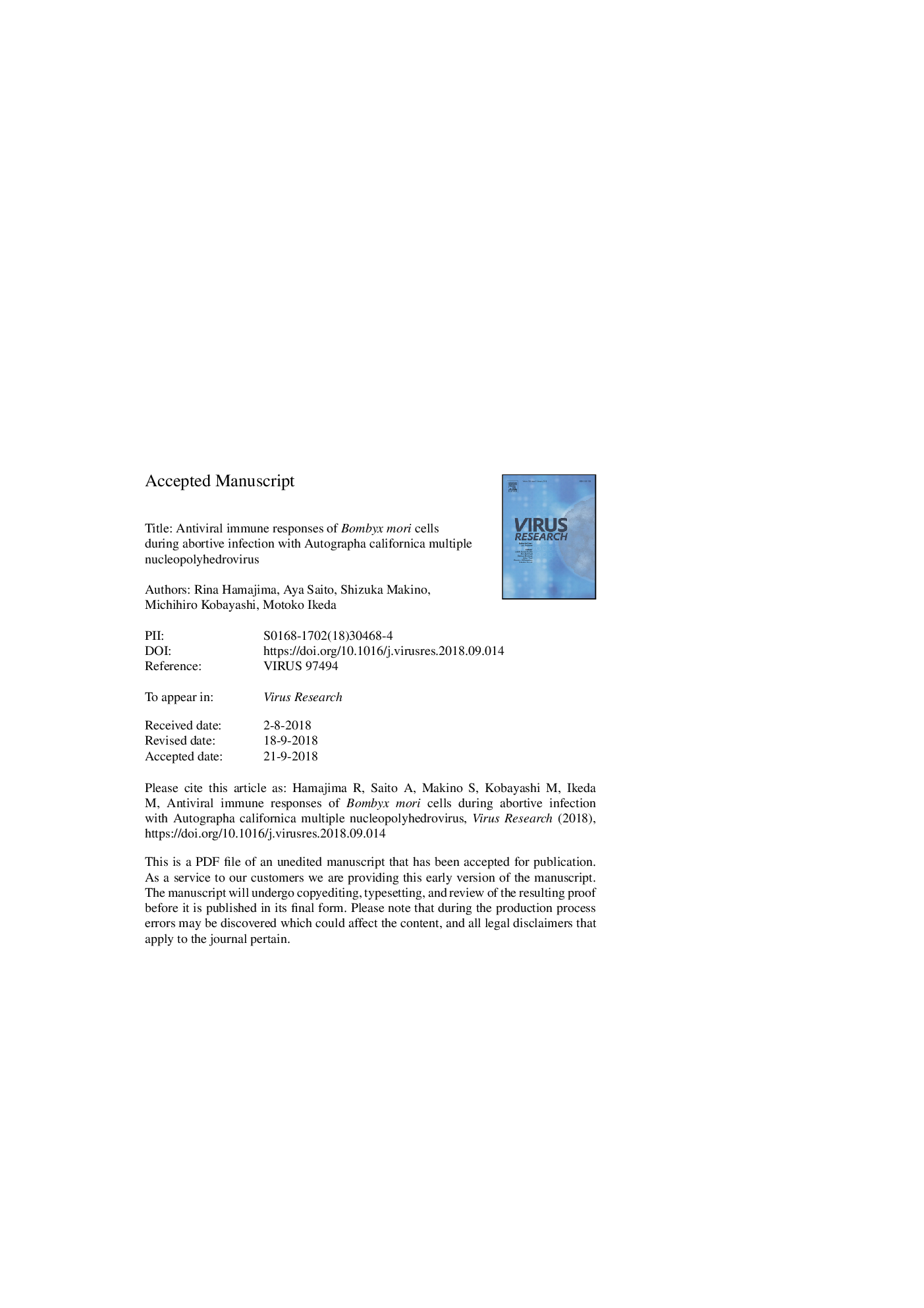| Article ID | Journal | Published Year | Pages | File Type |
|---|---|---|---|---|
| 11018332 | Virus Research | 2018 | 45 Pages |
Abstract
Lepidopteran cells rely on multiple antiviral responses to defend against baculovirus infections, including apoptosis, global protein synthesis shutdown, and rRNA degradation. Here, we characterized apoptosis and rRNA degradation in Autographa californica multiple nucleopolyhedrovirus (AcMNPV)-infected Bombyx mori cells, a system resulting in abortive infection, in relation to viral DNA replication and viral late gene expression. RNAi-mediated silencing of viral DNA replication-related genes prevented apoptosis, but not rRNA degradation, in B. mori cells infected with p35-deficient AcMNPV. Additionally, AcMNPV, but not B. mori nucleopolyhedrovirus (BmNPV), drastically reduced B. mori cellular iap1 transcript levels and p35-deficient AcMNPV induced more prominent apoptosis than did p35-deficient BmNPV. These results, together with previous results that global protein synthesis shutdown follows viral DNA replication, demonstrate that rRNA degradation is the primary antiviral response that abolishes productive AcMNPV infection of B. mori cells. Our results also demonstrate that B. mori cells induce apoptosis to a different extent depending on NPV species.
Related Topics
Life Sciences
Immunology and Microbiology
Virology
Authors
Rina Hamajima, Aya Saito, Shizuka Makino, Michihiro Kobayashi, Motoko Ikeda,
